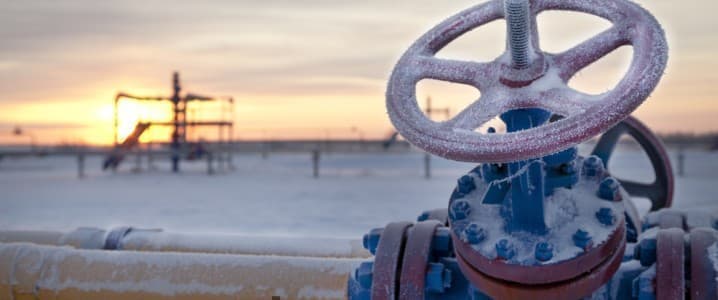According to the International Energy Agency (IEA), Canadian oil is set to decline within the next decade. That has not stopped funding from flooring into new projects however as producers aim to milk the country’s oil reserves for all they’re worth before that. The IEA foresaw this, predicting that Canada could be producing an additional 700,000 bpd of oil equivalent by 2030, before the eventual decline in demand and output.
The decline of Canadian oil should not come as a surprise for a country whose leader announced a net-zero carbon emissions target by 2050 in line with Paris Agreement aims at the end of 2020. Canada’s openness to green policy and the push for an electric vehicle (EV) revolution across the country means Canada will soon decrease its domestic reliance on fossil fuels.
Yet, the pessimistic outlook has not stopped the government and Canada’s private oil and gas companies from planning huge developments to ensure the industry remains resilient for as long as demand is high.
Oil shipments from Canada to the U.S. boomed earlier this month, reaching 4.04 million bpd, following the inauguration of Enbridge Inc’s expanded Line 3. The upgraded pipeline, which has been in the works for years but was constantly delayed, is capable of transporting 760,000 bpd of heavy and light oil, around double the capacity of the company’s previous pipeline.
With the combination of OPEC+ oil cuts and oil refinery outages following Hurricane Ida, America has come to rely more heavily on Canada for its oil supply in recent months. The expansion of the pipeline now makes it possible for Canada to deliver the much-needed supply. And it comes at a time when gas and petroleum prices are soaring and shortages are common, with the recent boost in supply offering hope.
Related: The Battle For Oil Market Share Heats Up Within OPEC
In addition, Enbridge has invoked the 1977 Transit Pipelines treaty to ensure its Line 5 remains active after the state of Michigan voiced opposition to the project for fear it could detrimentally impact the Great Lakes. Michigan Governor Gretchen Whitmer revoked permission for operating pipelines in the region, which Enbridge continues to ignore due to the significance of pipeline. Line 5 transports 540,000 bpd of Canadian crude, as well as refined products, from Wisconsin to Ontario.
Enbridge is willing to invest yet more money on keeping its pipelines up and running while demand is high, proposing a $500 million tunnel to house Line 5, to be completed by 2024. The company hopes this infrastructure project will help lessen the fears around the aging pipeline and its potential impact on the environment.
Now that the treaty has been invoked, the pipeline issue will be escalated beyond local negotiation and will be addressed in a federal court. In addition, President Biden who has so far remained uninvolved may have to become entangled in talks around energy transport links between the U.S. and Canada.
The persistence by Enbridge to ensure energy connectivity between the U.S. and Canada comes following the cancellation of the $8 billion Keystone XL pipeline in June this year as the permit for the development was revoked by the Biden administration. Keystone XL, which had previously been approved by President Trump in 2017, was expected to transport oil from Alberta to Nebraska across a distance of 1,200 miles.
Related: Why Iraq Can, But Won’t, Reach 8 Million Bpd Of Oil Production
Canadian oil majors are no longer willing to leave the fate of their industry in American hands, as Enbridge is proving. Even Prime Minister Trudeau, who has promoted many green policies and shares several U.S. climate change values, criticized President Biden for the cancellation, which was expected to cause the loss of around 1,000 construction jobs as well as prematurely damaging the North American oil and gas industry.
Unsurprisingly, the Canadian government is planning to increase its national oil production, with policies continuing to favor fossil fuels, according to the 2021 Production Gap Report. Despite enthusiasm around climate change policy, Prime Minister Trudeau remains dedicated to the maintenance of an industry which continues to be lucrative and responds to regional demand, as well as contributing thousands of job opportunities. While plans for net-zero remain in place, Canada is not yet ready to give up its position as a global oil and gas leader, particularly because of so much uncertainty around OPEC+ production.
ADVERTISEMENT
The Canadian oil boom cannot last forever, and the industry is facing many more hurdles as its allies look to tackle climate change and wean themselves off fossil fuels. However, at present, Canada’s oil industry remains strong, with no sign of giving up before it must.
By Felicity Bradstock for Oilprice.com
More Top Reads From Oilprice.com:
- Middle East Oil Exporters To See Fast Economic Growth In 2022
- The Commercial Case For Green Hydrogen
- Venezuela’s Crumbling Oil Industry Is An Environmental Time Bomb



















Vancouver looks set to be "okay" because of an awesome logistical capacity and ability to "build up" to help at least possibly contain the disaster locally...but "everything else Canada" has to be sold into the USA to get those valuable US Dollars no different from China, Europe, Mexico, Brazil etc at the moment.
Long $rrc Range Resources
Strong buy